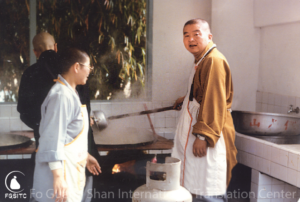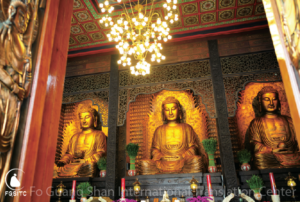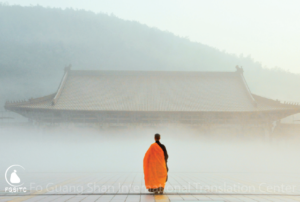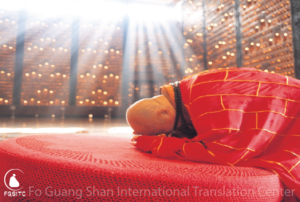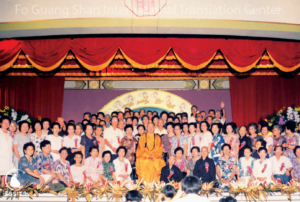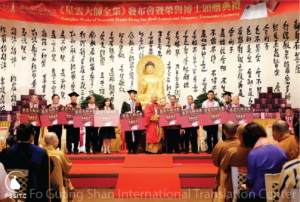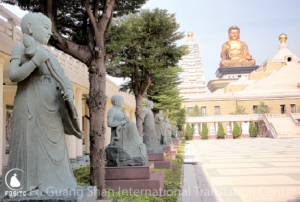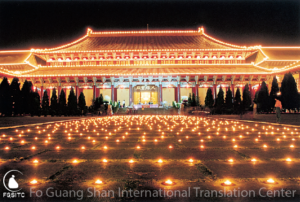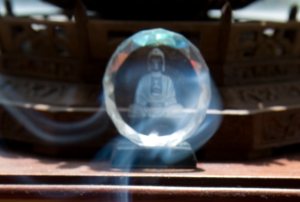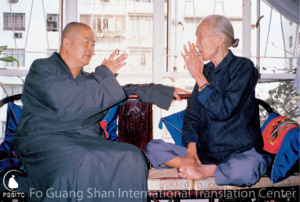Highlights from the book I Am Not a Monk “Sponging Off” Buddhism, by Venerable Master Hsing Yun
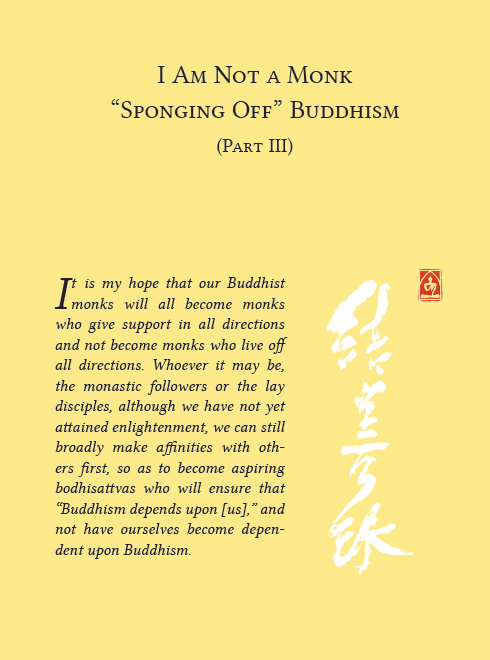
I Am Not a Monk
“Sponging Off” Buddhism
(Part III)
It is my hope that our Buddhist monks will all become monks who give support in all directions and not become monks who live off all directions. Whoever it may be, the monastic followers or the lay disciples, although we have not yet attained enlightenment, we can still broadly make affinities with others first, so as to become aspiring bodhisattvas who will ensure that “Buddhism depends upon [us],” and not have ourselves become dependent upon Buddhism.
I wrote the article “I Am Not a Monk ‘Sponging Off’ Buddhism” without any intentions. My only consideration at the outset was that the faith of our monastics ought to be purified: aspiration must be genuine, and patience must be strengthened. Particularly in their life of spiritual practice, monastics must have a sense of “for Buddhism,” so as to develop the habit of showing care toward the devotees.
They must be “strict with themselves, but lenient toward others”; they must do the work of propagating the Dharma for the benefit of sentient beings, with all their might;
They must treat others in a wholesome way; and they must do good naturally and happily, and so on. In this way, they can be somewhat up to par as disciples of the Buddha.
Hence, I could not have imagined that its publication in The Merit Times for January 23rd and 24th would meet with such an enthusiastic response from all circles, and there would be people abroad in regions such as England and America who were reading this article.
After [the second] article was published on January 30th and 31st, the response was even more enthusiastic. I was momentarily stirred to action, so I simply extended the article with a third installment! This is why I am talking once more about how “I Am Not a Monk ‘Sponging Off’ Buddhism.”
The reason why I have said so much here is that I only want Fo Guang Shan’s disciples to know how, in their life of spiritual practice—of having few desires and being content—they must make earnest efforts “for Buddhism,” must make the aspiration for enlightenment, and must propagate the Dharma for the benefit of sentient beings.
- An Initial Resolve: Love of the Teachings Makes Contributions to the Buddhist Faith
The thirty-eighth year of the Republic (1949) was the year I first arrived in Taiwan as a young monk, and when I had reached an impasse, Professor Ch’in Chiang-ch’ao of National Chung Hsing University once wanted me to participate in the work of editing Free Youth Magazine; which they were running. Then there was the director of Radio Taiwan International who wanted me write broadcast scripts.
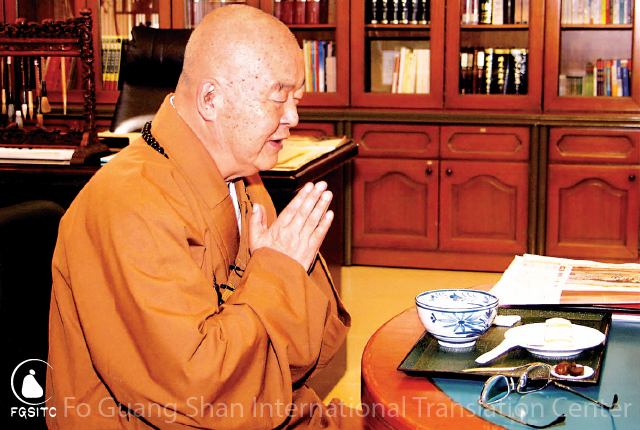
The Venerable Master enjoying simple living with one vegetable dish and one bowl of rice.
Additionally, there were newspapers that sought me out to become a reporter, and so on, but I politely declined them all without exception because I did not need to depend upon a career in society for my support.
I am a monk of the Buddhist faith, so I ought to do my best in fulfilling my role as a monk.
Therefore, even as I lived without money or prospects, I still followed my own initial resolve to not become a monk who “sponges off” Buddhism, nor become someone who is supported by society.
Therefore, I stand by my job for Buddhism, and I do so with diligence. Although I have not achieved much in the way of results, I still exert myself while engaging in the ascetic practice of and the care of the Buddhist faith, so as to become a monk who loves the Buddhist faith and who does not sponge off it. This is how I have fixed this identity of mine, which is unshakable.
Owing to my own diligence, I also formed some positive connections when I first arrived in Taiwan. For example, someone wanted to give me a house to live in, which would have allowed me to focus on writing my essays in a western-style house with a garden; and there was also someone who was even willing to bestow upon me a certain building that would serve as my base for propagating the Dharma.
What kind of person am I? I dared not accept such considerable donations. I cannot draw assistance in the name of Buddhism and so become unworthy of the donations given in faith. I definitely must depend upon my own diligence in order to propagate the Dharma; therefore, I gracefully declined their kindnesses.
Chapter subheadings:
- Being Faithful in Promises: Publishing the Magazine on Time
- Afraid of Disturbing Others, Patiently Waiting in Silence
- The Experience of Hunger: Vowing to Widely Open the Universal Gate
- Actions Are Implemented: Speeches at Institutions of Higher Learning for Propagating the Teachings
- An Initial Resolve: Love of the Teachings Makes Contributions to the Buddhist Faith
- Supporting Each Other: Working as One to Develop a Religious Organization
- Directing All Energy to Bringing Warmth to Society
- A Modicum of Giving Transforms Popular Attitudes
- To Relinquish Is to Gain: The Dharma Is Propagated to the World’s Five Continents
- Propagating Buddhism: Giving Support to Sentient Beings in All Directions
The Author’s Preface, Forewords, Afterword, and Chinese Editor’s Remarks are available to read online.

